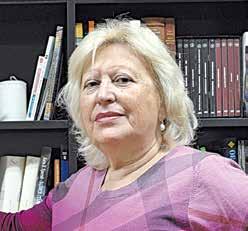
53 minute read
ENTERING A NEW FASHION DECADE
Holidays With Friends And Books
Books BOX 1 January – Belgrade Youth Centre
Advertisement
The end of another year is approaching and let’s try to end it beautifuly. Although this year’s edition of the Holiday with Friends will take place without accompanying programs, promotions and book signings, organisers have tried to give you, in cooperation with more than twenty publishing houses, the opportunity to buy / or donate book (s) with 10-50% discounts.
See you in the bookstore, the hall of the Belgrade Youth Center and at www.beopolis.rs. P.S. Here is a list of publishers and discounts, so you slowly start preparing. 30% -50% discount: Book Factory 25% discount: Plato Publishing 20% discount: Rašić Literary Workshop, Desk, Geopoetics, Athos, L.O.M., Karpos, Contrast, Bukefal, Faculty of Media and Communication, Komiko, Arete, Fedon, Hoplit 15% discount: Booka, Futura publications, PPM Enclave, Psychopolis 10% discount: Dereta, Clio, XX century The song by Argentine writer, soldier, journalist and politician José Hernández “Martín Fierro” was published in 1872. This epic is composed of two parts: “El Gaucho Martín Fierro” and “La vuelta de Martín Fierro”. Today, this famous work is considered one of the most significant expressions of Argentine literature, it has been translated into more than 30 languages, including Serbian. The Embassy of Argentina and the Instituto Cervantes in Belgrade present 13 lithographs made by painter, draftsman and engraver Carlos Alonso (Tunuyán, Mendoza, 1929) for the publishing house Emecé, after winning an illustration contest for Martín Fierro and another work by Don Quixote in the 1950s. de la Mancha. The circulation included 2,000 copies with 13 lithographs and 67 drawings. Then, in 1963, he illustrated postcards for scenes from “Don Quixote” for the Soviet Union, along with other great artists such as Gustave Doré, Honore Daumier and Pablo Picasso. In the works of Carlos Alonso, there are scars from the military dictatorship (in 1977 he was exiled in Spain), as well as political engagement, not neglecting the eroticism noticeable in the second part of his artistic production. Alonso’s work constantly points to the paradox between subjectivity and rationality, chaos and order, between pleasure and discipline.
Thomas Dylan Verses On Film 26 January, 7 pm, SKC The sixth edition of the cycle “Performing Poetry on Film” is dedicated to the verses of Dylan Thomas. It builds on an analysis of film performances of poetry by T. S. Eliot, William Blake, William Butler Yates, Edgar Allan Poe, and Walt Whitman. One segment of the films from which the inserts will be shown is dedicated to his personality, ie in a documentary or somewhat fictionalized way it deals with his nature, life habits and approach to poetry, with a clear emphasis on the specifics of the way he performed his poetry. The second segment includes those film narratives in which his name is only mentioned, and which are entangled around some specific verses, such as “and death will have no dominion,” or “does not go quietly into that mild night.” In Soderbergh’s version of “Solaris”, the constant return of a dead unrepentant darling, for which the protagonist finds an explanation in the influence of the planet in whose orbit the space station in which the action takes place, is hinted at by Thomas Dylan’s verses he utters at a real meeting. In John Smith’s Dangerous Minds, verses of disapproval of death are read by analogy with the ethics of street fighting, which is the reality of teenagers growing up in a small provincial town in California, where racial segregation, poverty and complete distrust of society prevail.

RECOMMENDS
THE ICKABOG J.K. Rowling 3.299,00 rsd
The Ickabog is coming… A mythical monster, a kingdom in peril, an adventure that will test two children’s bravery to the limit. Discover a brilliantly original fairy tale about the power of hope and friendship to triumph against all odds, from one of the world’s best storytellers. The kingdom of Cornucopia was once the happiest in the world. It had plenty of gold, a king with the finest moustaches you could possibly imagine, and butchers, bakers and cheesemongers whose exquisite foods made a person dance with delight when they ate them. Everything was perfect – except for the misty Marshlands to the north which, according to legend, were home to the monstrous Ickabog. Anyone sensible knew that the Ickabog was just a myth, to scare children into behaving. But the funny thing about myths is that sometimes they take on a life of their own.
HILMA AF KLINT: SEEING IS BELIEVING Kurt Almqvist, Louise Belfrage 3.999,00 din
The result of a series of lectures delivered during the 2016 Serpentine Galleries exhibition Hilma af Klint: Painting the Unseen, this volume gathers essays examining the last abstract series made by Hilma af Klint (1862-1944). The paintings were all created in the first half of the year 1920 and are the last paintings af Klint made before turning to watercolour. Reproductions of these images are complemented by essays from Briony Fer, David Lomas, Branden W. Joseph, Hans Ulrich Obrist and Daniel Birnbaum, which shed new light on af Klint and her importance for artists today, also addressing the need for a broader conception of art history that her work proposes.
CHOCOLATE: RECIPES AND TECHNIQUES FROM THE FERRANDI SCHOOL OF CULINARY ARTS Esterelle Payany 3.999,00 din
This is the ultimate reference on cooking with chocolate from Ferrandi, the Parisian school of culinary arts that was dubbed the “Harvard of gastronomy” by Le Monde newspaper. This book offers a complete chocolate course for the home chef from the world-renowned professional culinary school Ferrandi Paris. It presents comprehensive techniques for working with chocolate, from tempering and decorative flourishes to recipes such as the Opéra pastry or molten chocolate cake. From rich chocolate ganache to melt-in-your mouth truffles, this book leads aspiring bakers through every step-from basic to special occasion skills. Starting with advice on how to equip your kitchen, to essential techniques, fillings, and decorations, the books covers everything from quick desserts to holiday specialties and from frozen ice creams and sorbets to candies.
THE LITTLE BOOK OF DANISH DESIGN: FOR CHILDREN AND CURIOUS GROWN-UPS Marie Hugstead, Kitt Stuart Schwenn 4.799,00 RSD
The Little Book of Danish Design for Children and Curious Grown-Ups tells fun and interesting stories about 50 Danish design icons. With a light touch and colourful and humorous illustrations, the book takes a fresh look at some of the many great Danish design objects that have been created for the home over the past century. The book presents popular design classics by Arne Jacobsen, Finn Juhl and Hans J. Wegner as well as the LEGO brick, the Panton chair and a selection of new iconic products by Royal Copenhagen and Bang & Olufsen, among many others.
WRITING THE FUTURE: JEAN-MICHEL BASQUIAT AND THE HIP-HOP GENERATION Liz Munsell, Greg Tate 5.599,00 RSD
In the early 1980s, art and writing labeled as graffiti transitioned from New York City walls and subway trains onto canvas and into art galleries. Young artists who freely sampled from their urban experiences and their largely black, Latino and immigrant histories infused the downtown art scene with expressionist, pop and graffiti-inspired compositions. Jean-Michel Basquiat was among the best known of these emerging artists. He and his fellow creators – including A-One, Fab Five Freddy, Futura, Keith Haring, Kool Koor, LA2, Lady Pink, Lee Quiñones, Rammellzee and Toxic – became avant-garde leaders infiltrating and reshaping the predominantly white art world. This book captures the energy, inventiveness, and resistance unleashed when hip-hop went ‘all city’.
TIM WALKER: SHOOT FOR THE MOON Tim Walker 13.549,00 RSD
Shoot for the moon. Even if you miss, you will land among the stars - Norman Vincent Peale. Tim Walker s monograph Story Teller, published by Thames & Hudson, introduced audiences to this unique photographer s fantastical, magical worlds, conjured anew with each shoot. But every point must have its counterpoint, day its night, light its dark; creativity is no different. Shoot for the Moon, Walker s much anticipated followup, draws audiences close to reveal fantasy s other, darker side. Delving deep into the art and mind of one of the most exciting and original fashion photographers working today, Shoot for the Moon showcases the gamut of Walker s weird, wild Wonderlands. In images that demand to be read as art as much as fashion, his signature opulence and decadent eccentricity encroach ever further beyond the real , exploring the mysteries of imagination and inspiration, and where it is they come from. Dazzlingly designed to a lavish spec, with images featuring some of the biggest names in fashion and contemporary culture, and texts and commentary by a collection of noteworthy contributors as well as Walker himself, Shoot for the Moon is set to be an unmissable addition to the lexicon of fashion photography.
AFTER WORK
10 DEC AMBASSADOR OF ISRAEL CONGRATULATES HANUKKAH
On the eve of the Jewish holiday of Hanukkah, Ambassador of Israel to Serbia H.E. Yahel Vilan addressed all celebrating this holiday via the Embassy’s official Facebook page. Ambassador Vilan wished an ending to a very difficult year due to the Covid-19 pandemic, and expressed his belief that “the light is at the end of the tunnel”. Ambassador said that he is happy to have the opportunity to celebrate the great Jewish holiday with the Serbian people, and pointed out the strong ties between Serbia and Israel.

10 DEC

AMCHAM 8TH LAP TIME CONFERENCE: E-PROGRESS
AmCham member companies believe economic recovery in 2021 would best be promoted by reforms to strengthen rule of law and judicial efficiency, make changes to legislation more predictable, optimize and digitalize public administration, create synergies between public and private healthcare, tackle the shadow economy, and streamline tax administration. Despite the strong impact of the Covid-19 pandemic on both the global and the Serbian economy, members of the American Chamber of Commerce in Serbia are cautiously optimistic in their expectations for 2021. Most AmCham members (56 percent) forecast business expansion and growth in 2021, with 30 percent planning new hiring.
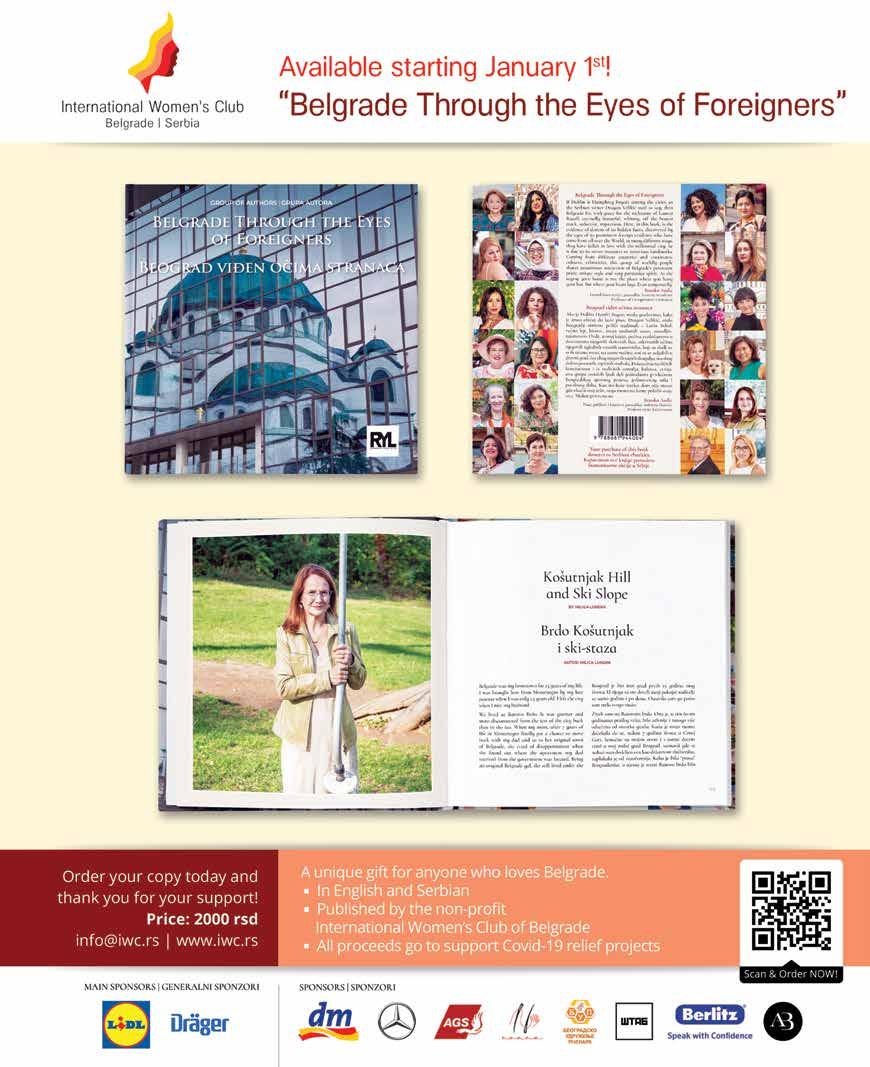
AFTER WORK
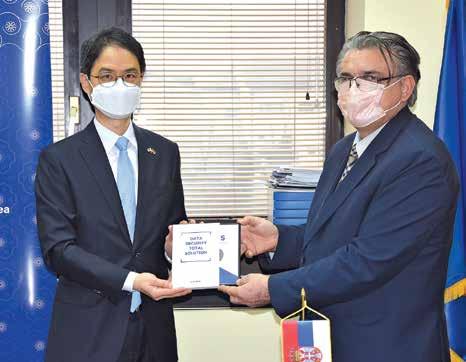
18 DEC
CONFERENCE “CULTURE IN THE TIME OF THE PANDEMIC”
The regional conference “Culture in the Age of Pandemic” was organized by the Ministry of Culture and Information of the Republic of Serbia as an opportunity to exchange opinions and best practices and potentially launch initiatives aimed at overcoming the challenges of the coronavirus pandemic. Representatives of the ministries of culture of the region participated in the online conference. The conference was also attended by ambassadors of foreign countries to Serbia, as well as representatives of the foreign cultural institutions. The head of the European Union Delegation to Serbia, Sam Fabrizi, said that the EU had provided support to culture through various mechanisms and programs. SEE MORE: WWW.CORDMAGAZINE.COM
17 DEC
The Korean Government has delivered criminal investigation equipment to the National Forensic Center of the Ministry of Serbia, comprising of an advanced video recovery program, a video spectral comparator and IT equipment to support Serbia’s efforts to improve criminal investigation. The value of the donation is $100,000. At the donation ceremony, Head of Criminal Police Directorate of the Ministry of the Interior Bogdan Pušić thanked Ambassador of Korea to Serbia H.E. Hyoung-chan Choe on the donation, and pointed out that the donated equipment will help Serbia strengthen its capacities in criminal investigation. Ambassador Choe stated that he was pleased to deliver the Korean digital video recovery program which was developed in Korea with an advanced technology along with other IT equipment and that he hoped these high-quality items would be useful for experts and investigators of the National Forensic Center of Serbia in strengthening its capacity of criminal investigation.
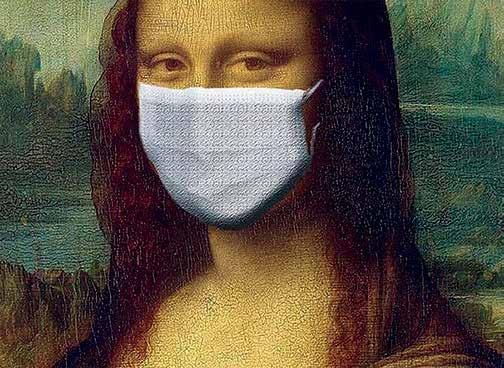

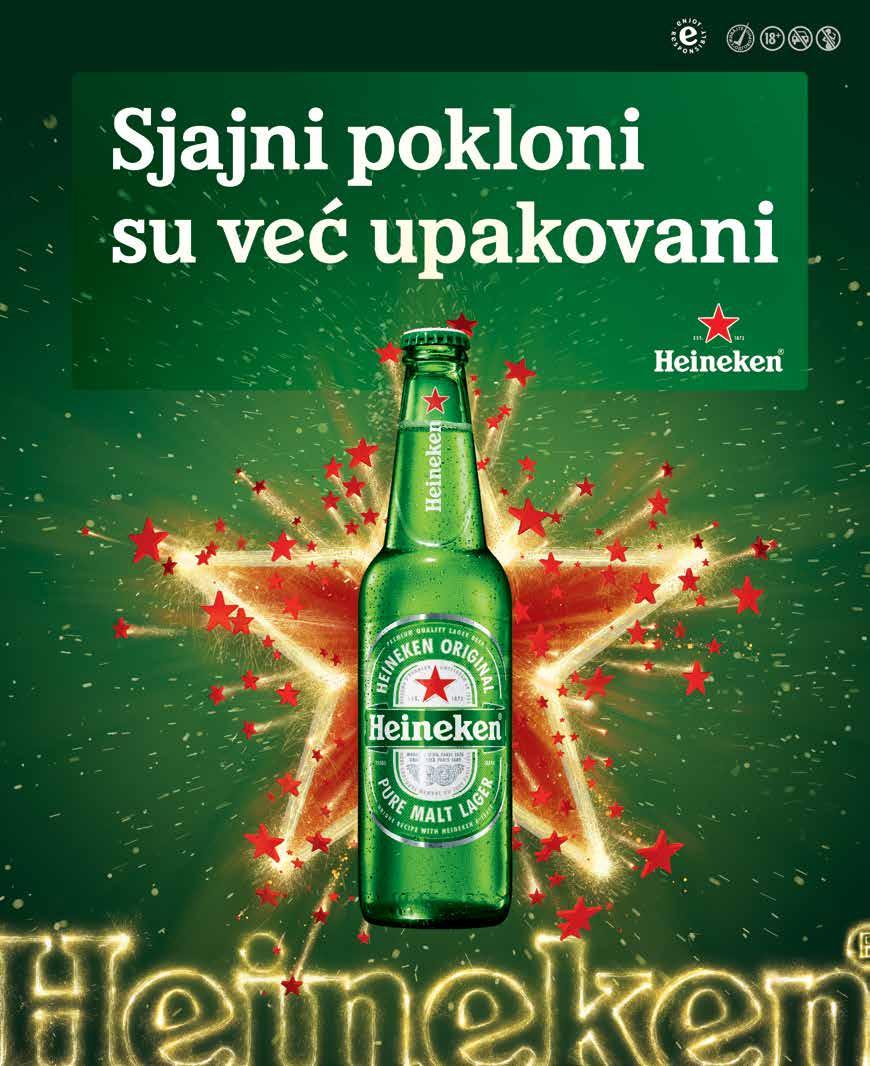
CSR 2021
New Reality New Responsibility
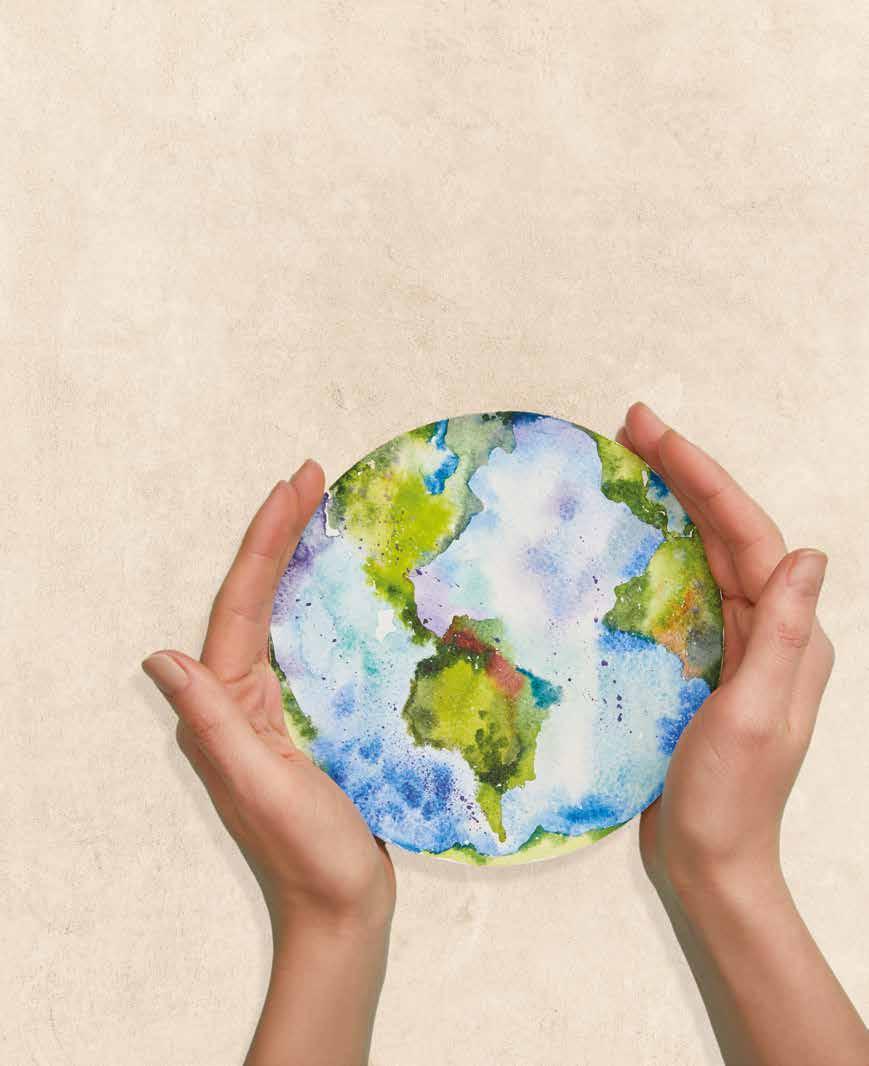
Giving Has Become Even More Precious

Both CSR practitioners and researchers expect companies to profoundly reconsider their CSR strategies in the post-pandemic and environmental challenges. This will come as a consequence of the changes in consumer preferences, as the people demand action era and to interlink their personal goals with those related to the UN that is more meaningful and ethical. This, for Sustainable Development Goals. example, means interlinking CSR activities with sustainability and the UN Sustainable It is no secret that the COVID-19 global pandemic has had a profound impact on the global business community and its relations with global and local surroundings. Pressed their strategic decisions. Numerous companies have already decided to use corporate social responsibility (CSR) to demonstrate their commitment to fighting against COVID-19 and way, consumers expect companies to respond to both the global and local threats to economic, social and environmental sustainability that have been imposed by the COVID-19 outbreak. by the cost of the continuing crisis, countries alleviating the negative consequences of the Such a situation may create space for around the world have decided to open up to pandemic for their stakeholders. some improvements in domestic legislation the business world and seek support. Indeed, Both CSR practitioners and researchers governing CSR, specifically food donations, in many countries – Serbia included – numerous companies rushed to support healthcare systems in providing essential equipment and Consumers expect companies to respond to both the global and medication. More than half of all companies in local threats to economic, social and environmental sustainability Serbia report that the crisis has had a major that have been imposed by the COVID-19 outbreak impact on their finances and operations, while the remaining companies assess its impact Development Goals. In a more straightforward as medium. Regardless of these sobering expect companies to profoundly reconsider which it seems could be needed even more statistics, most companies did their best to their CSR strategies in the post-pandemic era. once the full weight of the economic crisis hits. channel their CSR activities toward those Our interlocutors, as well as their col- As pointed out in our publication, it is who are most in need. leagues elsewhere around the world, expect estimated that the value of food donated on
This unprecedented crisis has affect- that the experiences of the COVID-19 global the Serbian market currently amounts to a ed both consumer behaviour and company pandemic could lead to changes in consum- value of 525.6 million dinars. If VAT on food practises. Consumers changed the way they er psychology and behaviour, especially in donations were to be abolished, donors would use their spare income and spare time, taking terms of the central role that CSR can play in increase their contribution by almost a third. the opportunity to reconsider their values, reconstructing business opportunities and Translated into meals, this would mean an priorities and sentiments in buying products international economies. additional 1.2 million meals. and brands. For example, it is expected that compa- This topic was debated with decision
These changes have important conse- nies will put much more effort into shifting makers at the height of the pandemic, but it quences for companies. In the face of these towards more genuine and authentic CSR remains to be seen whether the proposal will new consumer trends, they will need to adjust that contributes to addressing urgent social be adopted. ■ 2
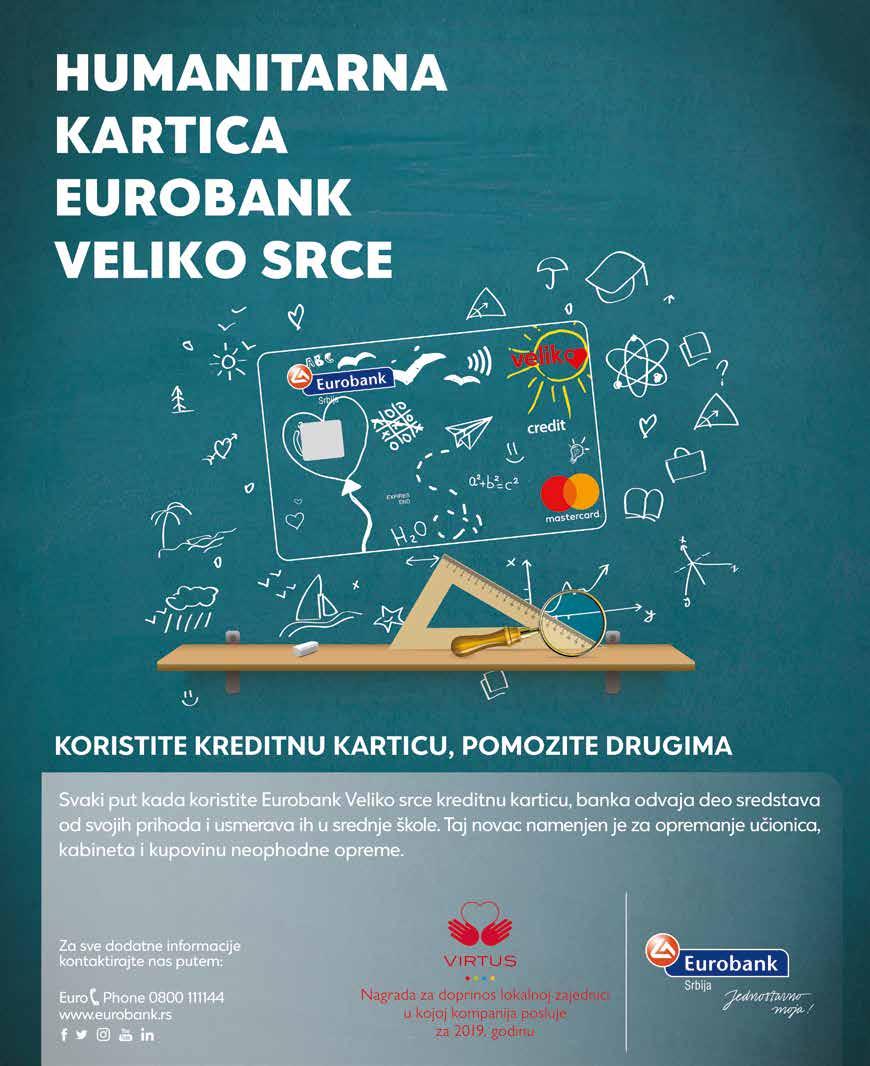
Focusing Attention On Sustainable Operations
We are witnessing changes to values, behaviour and priorities in all aspects of life, as well as in interactions between businesses and the society and communities in which they operate.

Without a shadow of a doubt, and without competition, the Coronavirus pandemic marked all aspects of life in 2020, including the domain of CSR activities. “We are aware of how negatively it has impacted on society and the economy, especially certain segments of the economy, the health system and individuals,” says Neven Marinović, Co-founder and Director of Smart Kolektiv and Executive Director of the Responsible Business Forum Serbia.
Companies first had to focus massively on the safety and health of employees, both physical and mental, which is certainly a positive trend, and many of these experiences and practises will continue being applied even after the epidemic ends, notes our interlocutor. On the other hand, as he explains, companies have - like society as a whole – reconsidered their business practises, but also their priorities in doing business. We can state unreservedly that companies will pay much more attention to topics related to sustainable business in the future, because it is now much clearer to everyone how important it is to preserve ecosystems that are already significantly damaged, to turn and direct the majority of business towards the local level, which includes local suppliers and partners, but also to support society as a whole and the support systems that are essential to us, such as healthcare and social care.
Alongside some global initiatives – such as the roadmap to achieve the UN Sustainable Development Goals, the manifesto of the World Economic Forum in Davos that calls for more responsible capitalism, and the new measures of the European Commission aimed at combating climate change – we can definitely expect these topics to be in the spotlight even more.
When it comes to the tangible engagements of companies in the period ahead, future investments in socially responsible projects will be influenced greatly by the epidemiological situation – by its seriousness and duration. Most companies that don’t have endangered operations aren’t planning to abandon their activities to date related to engagements in the community, emphasising that such engagements should be strengthened during times of crisis.
What do you consider as the key characteristics of company donations directed towards responding to the pandemic? According to the annual questionnaire Better Business for a Better Society, which was conducted again this year by the Responsible Business Forum, under the scope of the Project to Improve the Framework of Donations that’s implemented by the Charity Coalition with the support of USAID, 95% of surveyed companies were involved in supporting the community during the crisis, with the aim of preventing the negative consequences of the pandemic. This support came mostly in the form of monetary donations, but we could also see a significant share of donations in products. Companies also provided support in the form of the provision of pro bono services, through the launching of special projects to support small and medium-sized enterprises and with campaigns calling for responsible behaviour.
The surveyed companies donated an average of around seven million dinars to mitigate the negative effects of the pandemic, based on data collected until the end of June this year, while the largest amount of an individual donation recorded was 54.4 million dinars. Almost half of the recorded amount of donations was intended for direct support to the health system (RHIF and health institutions), while the other half was directed towards the support of local governments and local and national organisations dealing with humanitarian work, as well as institutions of social protection.
Organisations that deal with the topic of CSR and companies have been advocating for a long time for the introduction of stimulating legal measures, such as the abolition of VAT on food donations. This partly occurred during the pandemic. Is there space for this kind of change to become a permanent solution? It was made possible during the state of emergency to donate goods/equipment without paying VAT, for those donations that were sent to healthcare institutions. Most of the companies that we had an opportunity to talk with assessed the implementation of this mechanism as being good. However, it seems that the wider coverage of donations with this measure was lacking, bearing in mind the current needs that have emerged in the wider community and the increased need, among other things, for food donations.
When it comes to food donations, this is a long-term issue that relates mostly to support for the most endangered sections of society, but it also has a great impact on environmental issues and the efficient use of limited natural resources. It is a known statistic that a third of food is destroyed globally, producing up to eight per cent of all greenhouse gases. The amount of food destroyed in Serbia is measured in the billions of dinars and has a value ten times that of food that is donated, and one of the reasons for that is the lack of a stimulating fiscal framework.
The situation at present is such that it pays off more for businesspeople to wait for the expiry date of food to pass and to send it for destruction than it does to donate food prior to the date of expiry. This certainly isn’t the case in the countries of the European Union, which resolved this issue by adopting the Guidelines for food donations and currently 20 of the 27 EU member states do not charge VAT on food donated before its date of expiry.
Analysis conducted by the Forum for Responsible Business, on behalf of the USAID-supported Charity Coalition, shows that the social benefits of abolishing VAT would greatly exceed the potential social costs. The current value of food donated on the Serbian market is estimated at 525.6 million dinars, but with the measure of abolishing VAT this total would increase by almost a third, i.e. to an amount close to 700 million dinars. If we view this increase through the monetary value of one meal, it could mean
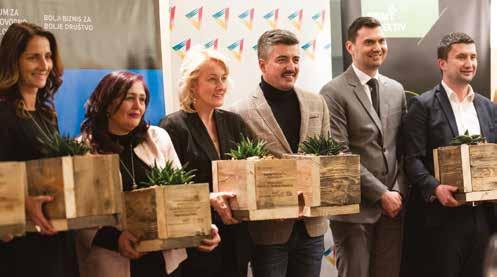
The Responsible Business Forum and Smart Kolektiv have been awarding the Volunteering Award since 2011. An invitation was announced on the eve of 5th December, International Volunteer Day, while the awards will be presented in March 2021.
an additional 1.2 million meals.
We have also presented this proposal to decision makers, and we are hopeful that there will be room to continue the dialogue and for this proposal to be adopted in the near future.
You also advocate for the abolition of the taxable amount of scholarships for pupils and students, and in the previous period you had your first discussions on this topic with the Ministry of Finance and the Tax Administration. December 5
The minimum non-taxable amount for scholarships that are awarded to pupils and students was increased from 11,741 to 30,000 dinars with the adoption of amendments to the Law on Personal Income Tax in October 2019, and it was subsequently adjusted further, in February 2020, and currently stands at 30,570 dinars.
This is one of the significant achievements that came as a result of joint work with the Council for Philanthropy, which was established by the Prime Minister of the Republic of Serbia within the previous mandate, and included – in addition to the aforementioned ministries – organisations gathered in the Charity Coalition comprising the Ana and Vlade Divac Foundation, Trag Foundation, Smart Kolektiv, Catalyst Balcans, the Forum for Responsible Business, the Serbian Philanthropic Forum and the Chamber of Commerce & Industry of Serbia, as initiators of this initiative.
Which measures are essential when it comes to motivating more companies and wealthy individuals to help society? The transparency of information and strengthening of mutual trust are prerequisites for establishing lasting partnership relations among all stakeholders in society. For example, when it comes to companies, under amendments to the Law on Accounting, which came into force on 1st January 2020, large companies with over 500 employees are required to report on sustainability, which represents a significant indicator of the quality of operations and, thus, the building of trust and the impact a company has on society. In this sense, the impact that companies have on society will also be an increasingly important measure for the financing of activities, but also for the market preferences of consumers.
What seems to me to be an essential measure is to work on the systematic recognising and evaluating of good practises, the more strategic positioning of responsible and sustainable operations in our country’s development agenda and the building of a general consensus regarding priorities in which to invest. It is with this objective in mind that the Forum for Responsible Business has launched a consultation process with the business community that has the idea of advocating for the initiation and adoption of a new sustainable business agenda. When it comes to sustainable development, the priorities for 6
the business sector - according to research into the attitudes of the business community - show that we have a number of topics that need to be worked on systemically. When it comes to people, these are: the hiring of young people, training and educational courses for professional occupations, working inclusivity of persons with disabilities, health and safety at work, as well as reducing inequality and poverty. When it comes to environmental protection, the challenges and opportunities for advancement relate to the management of waste and chemicals, energy efficiency, efficiency of the use of natural resources in production and consumption, as well as the quality and availability of water.
This is a time when many people worldwide have volunteered to help their compatriots and other people to overcome the pandemic. Our Law on Volunteering has been criticised on multiple occasions due to its inappropriate solutions. How much does this result in volunteering, as a form of CSR, suffering? The whole society suffers due to an inadequate legal framework for volunteering. Unfortunately, volunteering through the legal framework is not valued and recognised as a universal value that should be nurtured and encouraged, rather the emphasis is placed on the prevention of abuse. Corporate volunteering is based on a company’s existing relationship with its employees, so this relationship already exists and is further regulated by internal policies that define when and how employees can dedicate time to a social goal, with the company’s support. However, we are also seeing the emergence of new ways of engaging, such as expert volunteering and remote online volunteering, which remain unclear in the legal sense. On the other hand, a clear distinction needs to be made between volunteering and internships, which have been rendered almost equal in some professions. There are numerous reasons why organisations have pointed out the need for a more stimulating framework for years. However, progress has
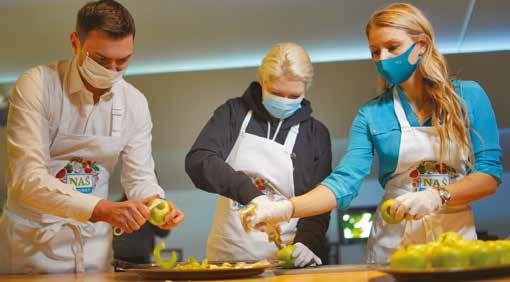
also been made in that domain this year.
After almost a decade of implementing the Law on Volunteering, the Ministry of Labour, Employment, Veterans and Social Affairs has formed a Working Group, and we have taken on active participation in its work. An ex post analysis of the effects of the implementing of this law, which was conducted within the scope of the mandate of this working group - comprising representatives of state institutions, civil society organisations and trade unions - showed that the law needs to be amended, so we now expect the forming of a new working group that will work in detail on ex ante analysis and the proposal for amendments to the law on volunteering.

For A Better Tomorrow
Corporate social responsibility is an important part of the corporate philosophy of Lidl Srbija
The company’s responsibility motto is “For a better tomorrow”, and it is in accordance with this that Lidl bases its activities on five pillars of responsibility: assortment, employees, environment, society and business partners, through which the company ensures that high quality is affordable, while advocating for the well-being of everyone who comprises the society, achieving long-term partnerships, taking care of its employees and preserving the natural environment.
REset plastic With a desire to preserve and improve the environment in which it operates, a special segment of Lidl’s responsibility is accounted for by a responsible attitude towards the natural environment, through a reduction in environmental pollution and the saving of energy and natural resources.
Given that plastic waste is becoming an ever increasing problem for the planet, Lidl is implementing the measures of REset Plastic, the international strategy for plastics that was launched in 2018 by the Schwarz Gruppe. Within the scope of this strategy, activities are focused on five areas of action: plastic bags from all Lidl stores in Belgrade in early 2020, while bags
thicker than 50 microns, which are durable and suitable for multiple use, have been introduced in other cities. • REdesign - the use of more responsible packaging is reflected in Lidl’s international commitment to reduce the percentage of polymeric materials in products of its private brand by 20% by the end of 2025.
Another goal is to ensure all Lidl brand plastic packaging is recyclable by the end of 2025. • REcycle - directed towards increasing the use of recycled plastics, this area encompasses continuous increases in the share of recycled plastic products in the Lidl range. Thus, at Lidl you can find products like Crivit sports shoes, which are made from plastic collected on beaches and coastal areas, or winter jackets that have a stuffing made from recycled bottles. • REmove - implying the removal of waste from nature. The aim is to protect natural resources through the active removal of plastics. In accordance with this, together with partners from the Mountain Rescue
Service and company Ekostar Pak, Lidl has organised the cleaning of
Nature Parks on four Serbian mountains. • REsearch - encompassing the area of encouraging environmental innovation and education. The Lidl market has introduced reusable 30-degree machine-washable bags that can carry up to five kilograms of the customer’s favourite fruits or vegetables.
• REduce - reducing the use of plastic, which implies the withdrawing of
was launched in 2018 by the Schwarz Gruppe
8 December
REmove - activities to clean mountains in Serbia The goal of the initiative for cleaning Serbia’s mountains, implemented this autumn, is to preserve the environment and natural resources. Apart from cleaning up waste that endangers our nature, we also strive to educate citizens and raise awareness of how to reduce waste, how to properly dispose of it and successfully recycle it after it is removed from nature, in accordance with the phrase “Reduce, Reuse, Recycle”.
Lidl launched this action on Mount Kopaonik. Volunteers removed waste from nature on the slopes of the National Park, one part of which has the highest concentration of accommodation facilities and cable cars, and thus a large fluctuation of visitors and, accordingly, a large amount of waste that they leave behind. This endeavour resulted in the
collecting of as much as 45kg of waste.
The next cleaning operation was organised on the Balkan Mountain, Stara Planina. Volunteers participating in this action met up at the Mountain Lodge on the Pirot side of the mountain. From there they headed to Zavoj Lake, only to continue cleaning in the area towards the popular excursion areas of Rosomački lonci and Tupavica Waterfall. The action yielded around 20 kg of waste for recycling.
Fruška Gora was cleaned in October 2020, with a total of 60 bags of waste collected. The cleaning was carried out on Irig Wreath, which has been a favourite picnic spot for years and had accumulated waste that’s left behind by unscrupulous visitors.
This year’s action for removing waste from the mountains of Serbia culminated on Zlatibor. Cleaning activities encompassed the area around the popular hiking trail to the Monument, which is a mandatory route for every visitor to this mountain. These four actions resulted in the collecting of a total of 150 bags of waste, both communal and recyclable, which was taken and further processed by the partner specialised in taking care of its disposal - Ekostar Pak.
Instead of celebrations, five million dinars for humanitarian purposes Alongside the strategic and long-term activities mentioned in the area of ensuring a more responsible attitude towards plastics, Lidl is also actively engaged in helping where it is most needed, for humanitarian purposes. In December 2020 Lidl employees from 30 cities across Serbia were given the opportunity to use funds initially earmarked for annual celebrations to instead select and suggest good causes to receive donations, with the company setting aside five million dinars for that purpose.
Support was provided to both individuals who are raising funds for medical treatment and to institutions working with neglected children and children with disabilities that are based in the same cities
as employees in Lidl stores – from Subotica, via Sombor, Belgrade and Loznica, to Niš.
Most of the money, according to the wishes of employees, has been allocated for the treatment of 15 people registered through the “Budi Human” foundation. In cooperation with this humanitarian foundation, an amount of around four million was directed for the treatment of 14 children and one adult who were most in need at that moment. Help was provided to: Minja Matić, Anika Manić, Oliver Pal Gajodi, Anđela Dimitrijević, Dejan Radojčić, Dražan Vučić, Filip Ivanović, Filip Radojčić, Ivan Filipčev, Jovan Panajotov, Kalina Rašeta, Nataša Stojanov, Ognjen Stojanović, Ognjen Žužić and Pavle Paunović.
When it comes to local institutions, again respecting the wishes of employees, the remaining part of the total funds was sent to the Centre for the Accommodation and Stay of Children and Youth with Developmental Disabilities in Obrenovac, the Vera Blagojević Home for Children and Youth in Banja Koviljaca, the Duško Radović Home in Niš, the Spomenak Home for children without parental care in Pančevo, the Home for children with developmental disabilities at the Monastery of St. Petka in Izvor near Paraćin, the Humanizacija Association in Sombor and Kolevka Home for children with developmental disabilities in Subotica.
With these donations, the Lidl collective showed that humanity must be above everything, for a better tomorrow for everyone. December 9

Even in a year that was marked by the Coronavirus Pandemic, the traditional action “Support to the Family” continued, within the scope of which MK Group provides financial support to employees within the group's system who became parents during the year. During 2020, more than five million dinars was secured for 146 newborn babies with a parent employed by MK Group in Serbia, Croatia and Slovenia.
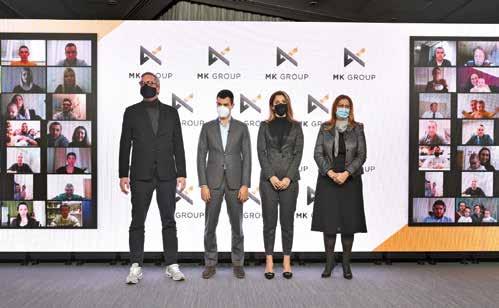
Speaking at the Sheraton Hotel event where new parents from the company gathered for a video conference, MK Group Vice President Aleksandar Kostić said that, over the past four years, 620 families and more than 1,000 children have been awarded a total amount exceeding 31 million dinars through the “Support to the Family” campaign.
“The strategic commitment of MK Group is to nurture true values, first and foremost family values, which is why I’m proud that we are also ending this year by supporting families who have bee enriched by a new member,” said Kostić, adding that it is clear to everyone that we live in a time when uncertainty has become commonplace, but that MK Group does not leave to circumstances the support of its employees and the community in which it operates.
MK Group last year received the “Friend of the Family” award of the Chamber of Commerce & Industry of Serbia for this action, and this year’s event was also attended by CCIS
President Marko Čadež.
“With the “Support to the Family” campaign and today’s event, MK Group – the first laureate of the Family Friend Award that’s presented by the Chamber of Commerce and the Serbian Government – celebrates life, as something that is most important to every parent, celebrates children and the future. MK Group is a company that has, for 35 years, cultivated the values of creation, responsibility and sustainability,” said Čadež. He told parents to teach their children about the way they work
MORE THAN 5 MILLION DINARS FOR NEWBORN BABIES IN THE MK GROUP
in this company – to be diligent, tenacious, fighters, just like company founder Miodrag Kostić and vice president Aleksandar Kostić.
Also emphasising the importance of support from the employer was MK Group employee Ana Micić. “I’m glad that the MK Group action “Support to the Family” has become a beautiful tradition. Now that one part of the worries and difficulties faced by those of us who received a baby this year is over, this kind of gesture of the employer means a lot to us,” said Micić.
MK Group is among the most successful regional groups, which operates in the fields of agriculture, finance and tourism. Through numerous activities and social responsibility projects, this company strives to provide an adequate contribution to the local community and to support employees in the system. The company’s focus in 2020 was on providing assistance to the health system of the Republic of Serbia in the struggle against the COVID-19 pandemic, with over a million euros donated for the purchase of respirators, medical equipment, food and other assistance for vulnerable sections of the population and medical workers. December 11
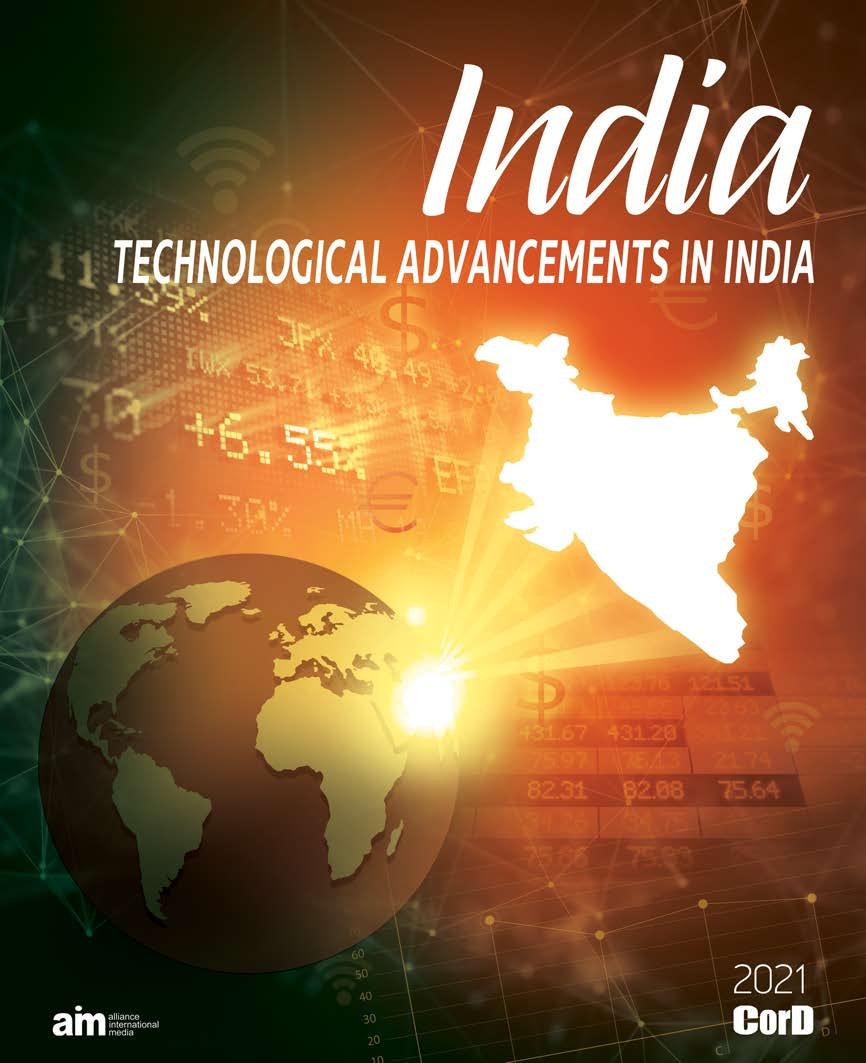
FIGHTING COVID IN THE “PHARMACY OF THE WORLD”
At least 300 million people will be vaccinated in India by August 2021. India plans to use a digital platform called ‘Co-WIN’ to ensure the real time monitoring of the Coronavirus vaccine. Through this application, people across India will be able to register themselves for vaccination - Subrata Bhattacharjee

In a message given at an event on ‘Safeguarding the planet’, Prime Minister Modi said that India is not only meeting its Paris Agreement targets, but will even exceed them Exports of Serbian apples to India started in October 2020. There are more such avenues to the Indian market
Just like the rest of the world, India has also spent the last year struggling to cope with the novel Coronavirus pandemic. Given that it is known for its own pharmaceutical industry, it is no surprise that several domestic companies in India are currently testing vaccines against COVID-19. In this interview for CorD Magazine, Indian Ambassador Subrata Bhattacharjee reminds us that “every third child in the world is vaccinated using vaccines produced in India”. That’s why it is expected that Indian pharmaceutical companies will soon be able to offer citizens of India, but also the rest of the world, a reliable solution for preventing the spread of the virus, which will not be expensive and will thus be available to all countries.
• While nearly the whole world has been witnessing a spike in Coronavirus cases, in India cases have been declining during recent months. Could you explain the present situation in India regarding COVID-19? - With a large population of 1.2 billion and high population density of 325 inhabitants per square km, India was naturally worried when the COVID-19 pandemic broke out. At its peak in India, the pandemic was causing over 97,000 new infections every day. But that was in mid-September 2020. Until now India has been able to contain the problem significantly, with new infections having now fallen to about 30,000 per day and declining further. Despite the country’s high population density, India has recorded only 6,731 cases of infection and 98 deaths per million residents. At the peak of the pandemic, in mid-September, India had over a million active cases. For many weeks, more people have been recovering every day than there have been new daily cases of infection. Consequently, the total number of active cases has now fallen below four million. Significantly, nearly 95% of those infected have already recovered and the fatality rate has been less than 1.5%. Less than 4% of cases are active. This success has been possible thanks to the quick and proactive decisions taken by Prime Minister Modi even before the disease could spread throughout the country. Aggressive containment and screening measures were instituted very early. India was among the first to introduce Rapid Antigen Tests, along with the RTPCR test. Large parts of India made masks mandatory way back in April, with PM Modi himself wearing masks in public since early April. India tests as many as a million people every day. With this, cumulative COVID-19 tests in the country number close to150 million. India also used the lockdown period very prudently, by creating facilities for fighting the pandemic. For example, India set up 15,362 dedicated COVID-19 health facilities, about 1.54 million isolation beds,
for vaccination
270,000 oxygen-supported beds and 78,000 ICU beds. It delivered 32,400 ventilators to state hospitals across the country. It also provided 37 million N95 masks and 16 million PPEs to State Governments. With all these measures in place, India is clearly on the path to recovery.
• Speaking at the G20 virtual summit in November 2020, Indian Prime Minister Modi said that terming the pandemic is the biggest challenge the world has faced since World War II. He also called on world leaders to focus their joint decisive action on “preserving the planet”. Do you believe
On the issue of Kosovo, India has a principled stance of supporting the sovereignty and territorial integrity of Serbia
that awareness of the need to protect the planet could really be raised in the post-corona period? - In a message at an event on ‘Safeguarding the planet’ on that occasion, Prime Minister Modi spoke about the need to fight climate change in an integrated, comprehensive and holistic manner. He said that India is not only meeting its Paris Agreement targets, but will also exceed them. India has been inspired by its traditional ethos of living in harmony with the environment and has adopted a low carbon and climate resilient development approach. In order for humanity to prosper, every single individual must prosper, and we should not merely see labour as a factor of production. Instead, we should focus on the human dignity of every worker. Such an approach, he stated, would be the best guarantee for safeguarding our planet. At the end of the Summit, a G20 Leaders’ Declaration was issued which called for coordinated global action, solidarity and multilateral cooperation to overcome the current challenges and realise the opportunities of the 21st century for all by empowering people, safeguarding the planet and shaping new frontiers.
• India is one of the countries that has experts working on a vaccine against the virus. How far have they progressed and will you insist on a domestic vaccine or will you import vaccines from other manufactures? - Popularly called “Pharmacy of the World”, India could not have been lacking in efforts to produce a COVID-19 vaccine that is very much needed to end the pandemic. Indian companies are known for producing high-quality vaccines at affordable prices. Every third child around the world is vaccinated with vaccines produced in India. So it is no wonder that three Indian companies have taken the lead in producing COVID-19 vaccine in India. Bharat Biotech and Zydus Cadilla, producers of two indigenous vaccines, have begun phase three trials of their vaccines in India. The other company, Serum Institute of India, December 3
is producing a vaccine under an agreement with AstraZeneca. PM Modi himself took a tour of these vaccine production facilities. Among foreign companies, Pfizer has also applied for permission to use its vaccine in India. The head of India’s National Expert Group for the COVID-19 Vaccine has already announced that at least 300 million people will be vaccinated in India by August 2021. India plans to use a digital platform called ‘Co-WIN’ for the real time monitoring of the Coronavirus vaccine. Through this app, people in India will be able to register themselves for vaccination. During this time of an acute need for a vaccine worldwide, India is committed to sharing its production capacities with other countries. With this in mind, India invited the ambassadors of many countries to visit vaccine production facilities. Sixty ambassadors visited the vaccine production facilities in Hyderabad, many of whom were greatly impressed and deeply appreciative of India’s role in fighting this global pandemic.
• Cooperation between India and Serbia during the time of the pandemic was reflected in Serbia procuring protective pharmaceutical equipment from India. You’ve previously stated that Indian pharmaceutical companies are interested in cooperation with Serbia. In which ways? - Since I spoke about this to the media in September 2020, we have not only been able to create awareness among Serbian and Indian companies about the opportunities for mutually beneficial cooperation, but we’ve also connected companies from our two countries. We have received feedback that many of them are talking to each other. Some Serbian companies have also conveyed to us that they intend to enhance their business with Indian companies and have proposed representing them in Serbia. Indian exports to Serbia of pharmaceutical and chemical products, including active pharmaceutical ingredient (API), have increased from a value of US$ 16.772 million in January-September 2019 to US$ 23.992 million during the January-September 2020 period, representing an increase of 43%. In addition, gloves worth US$2.028 million have been purchased by Serbia. 4 December
•Apart from medicine and the pharmaceutical industry, have you identified other areas where cooperation between the two countries could be improved? - At a time when disruptions to the global supply chain have had an adverse impact on the export and import activities of every country, there is a greater need to focus on specific areas for building closer economic and commercial relations between India and Serbia. Apart from medicines and pharmaceuticals, the agriculture sector offers great prospects. Agriculture plays a major role in Serbia’s economy. Exports of Serbian apples to India started in October 2020. There are more such avenues to the Indian market. Indian agriculture machinery manufacturers are also taking a keen interest in Serbia. A large delegation of Indian companies exhibited at the International Agriculture Fair in Novi Sad in May 2019. There was a plan for even greater participation in 2020, but the Fair was postponed. Indian companies will attend the next fair in larger numbers. India’s chemical sector is also renowned around the world. The chemical industry in India is valued at over US$163 billion and accounts for approximately 3.4% of the global chemical industry. India ranks sixth in the world in this sector. India is a largely diversified economy that has many other sectors to offer. For example, the Indian automotive industry is the world’s fourth largest. With the country being the fourth largest manufacturer of cars and the seventh largest manufacturer of commercial vehicles, India’s auto component industry has emerged as a robust and high-quality sector, with more Indian firms winning the prestigious Deming Prize for Quality than any other country. India has one of the largest electronics markets in the world and this industry is expected to grow by US$400 billion by 2025. Furthermore, the consumer electronics and appliances industry in India is expected to become the fifth largest in the world by 2025. India’s digital revolution and the Government’s focus on using technology to improve the delivery of services has opened up further opportunities for this sector and boosted the manufacturing of innovative products.
The Indian textiles sector also has a formidable presence both domestically and internationally and is extremely diverse, with
hand-spun and hand-woven textiles at one end and high-end capital-intensive products at the other. The textiles and apparel industries in India have strengths across the entire value chain, in products such as fibre, yarn and fabric to apparel. With textile exports standing at US$20.5 billion, apparel exports at US$16.1 billion and handwoven products at US$3.8 billion, India has become the world’s second largest manufacturer and exporter. India is a global powerhouse when it comes to the Information Technology (IT) sector. India’s IT industry has over 1,000 global delivery centres spread across 80 countries worldwide. The revenue of India’s IT and Business Process Management industry is estimated at US$191 billion and is poised to reach US$350 billion by 2025. India has made significant strides in the digital space and innovations, and has now diversified its offer using the latest technology and leading ideas in the fields of artificial intelligence, machine learning and blockchain. The tourism sector also offers plenty when it comes to cooperation between India and Serbia. With Serbia offering visa-free entry for short visits by Indians and India offering e-Visa to Serbians, movements between the two countries have become much easier. As many as 23 million Indian tourists visit foreign countries for tourism and leisure per year, spending US$23 billion on these trips. Serbia can gain much by attracting Indian tourists to the country.
• The Embassy of India in Belgrade marked the day of the Indian Technical and Economic Cooperation (ITEC) programme during November. Around 160 professionals from Serbia have attended courses to acquire various
skills under this programme since 2008. What are plans like for the period ahead? - India’s ITEC programme offers a broad spectrum of 300 training courses of different durations at India’s premier training institutes. This began in 1964 and over 160 friendly foreign countries are among India’s ITEC partners. Serbia has been an ITEC partner country since 2008. A hundred and sixty mid-level career professionals from Serbia have undergone courses on a wide and diverse range of skills and disciplines, including in ICT, Expenditure Management, Entrepreneurship, WTO, Banking & Finance, Renewable Energy, Climate Change, Legislative Drafting, Yoga, English proficiency etc. Due to the cancellation of international flights, restrictions on movements and gatherings, the threat of infection spreading from country to country etc., no Serbian was able to travel to India to attend ITEC training programme courses in 2020. In fact, ITEC training courses have gone online, like many universities that are offering courses in this way. However, this is only a temporary development. As soon as restrictions on movements and gatherings are lifted, ITEC courses will begin with renewed vigour, and Serbians are welcome to visit India again under this programme. •Your country received thanks for its support in preserving the territorial integrity of Serbia during the recent meeting with Serbian Foreign Minister Nikola Selaković. Has the Government of India ever considered accepting calls emanating from certain world capitals that encourage countries that have not yet recognised the independence of Kosovo to change their position? - On the issue of Kosovo, India has a principled stance of supporting the sovereignty and territorial integrity of Serbia. The consistent position that India has taken is borne out of India’s firm opposition to interference in the internal affairs of sovereign countries. Indian leaders have stated this publicly on many occasions. I am aware that Serbia is currently engaged in discussions aimed at solving the Kosovo issue.
• While announcing a major stimulus package to fight the economic impact of COVID-19, India took the initiative to boost manufacturing in India. Can you please share the details of this initiative aimed at boosting domestic manufacturing? - This is India’s Aatmanirbhar Bharat Abhiyaan, or Self-reliant India campaign, the vision of a new India envisaged by PM Modi. It was on 12th May 2020 that he announced the special economic and comprehensive package of INR 20 trillion - equivalent to 10% of India’s GDP - to fight the COVID-19 pandemic in India. The aim is to make the country and its citizens independent and self-reliant in all senses. He
further outlined five pillars of Aatma Nirbhar Bharat: economy (quantum jumps, not incremental changes); infrastructure (representing the modern India); systems (technology-driven systems); demography (vibrant demography of the world’s largest democracy); and demand (full utilisation of the power of demand & supply). The Government implemented several bold reforms, such as Supply Chain Reforms for Agriculture, Rational Tax Systems, Simple & Clear Laws, Capable Human Resource and a Strong Financial System. As many as ten champion sectors have been identified for production-linked incentives in order to boost the competitiveness of domestic manufacturing and provide a significant boost to economic growth and domestic employment. These sectors are (i) Advancing Cell Chemistry Battery (ii) Electronic/Technology Products (iii) Automobiles & Auto Components (iv) Pharmaceutical Drugs (v) Telecommunications & Networking Products (vi) Textile Products (vii) Food Products (viii) Solar PV Modules (ix) White Goods, including LED and Acs; and (x) Speciality Steel.
•India has a very strong agriculture sector and it has undertaken some important legislative measures to reform the agricultural sector. What are these reforms and how are they going to help farmers? - In September 2020, India enacted two new farm laws for agriculture and amended another relating to Essential agri-food stuffs. The first farm law offers farmers the choice to sell their produce outside of the regulated system for marketing agricultural produce within the State. The second law is an improved version of the Contract Farming Law that removes the complicated system of registration/licensing, deposits and various other compliance orders required for contract farming in various states. It intends to insulate interested farmers, especially small farmers, against market and price risks so that they can opt for the cultivation of high-value crops without worrying about the market and low prices in the harvest season. This Act also has safeguards against the transfer, sale, lease and mortgage of the land or premises of the farmer. The third Act lays down transparent criteria to regulate the supply of essential commodities under extraordinary circumstances. This removes the arbitrariness in invoking the Act. These measures fulfil the long-standing demand for reforms in India’s agriculture sector. The reforms have farmers’ income at the centre of their agenda. They will enable farmers to connect to markets all over the country. Farmers no longer need to pay a large number of market fees, taxes and charges on their produce. This will improve their returns. Better price discovery mechanisms for farmers will also lead to better remuneration for their produce. As such, these reforms provide farmers with new options for marketing their produce and also give them legal protection for actions that were previously deemed illegal. Furthermore, these reforms are expected to boost investment in the agriculture sector, through better backward linkages, assured prices and contracts for farm services. They will incentivise private sector investments across the entire cold chain, reducing post harvest losses and ensuring better prices for farmers. December 5
THE JOINT EFFORT
The recent technological advancements in India reflect not only the immense youthful energy and innovation in the country, but also substantial reforms undertaken by governments, and enabling platforms created by public-private partnerships. Here are some recent developments based on coordination among public and private sectors

India’s innovation ecosystem has grown by leaps and bounds in the last few years. It is currently ranked third in the world, with more than 50,000 startups and more than 500 incubators estimated around the country. More than just numbers, it is the astoundingly wide range of new services, products and technologies deployed by startups that attest to the strength of the country’s ecosystem. These innovation have directly or indirectly re-envisioned the future for a variety of sectors like financial transactions, shopping and retail, urban transport and office commute, and many more. 6 December
SECURING FINANCE
For thousands of years of recorded history to date, money was seen only in the form of currency notes and coins, of various sizes, materials, shapes and colours. Over the recent years, the speed of transformation in the financial sphere has seen exponential growth. Take for example instruments such as cheques and bank drafts that only appeared in the last few decades and have already become almost obsolete.
Only feeling scared of COVID-19 will not help. We have to take the right precautions and fight this pandemic. Aarogya Setu is an important step in that direction. By leveraging technology, it provides important information. As more and more people use it, it’s effectiveness will increase.
Narendra Modi, Prime Minister of India
The Public-Private Partnership model shall be the bedrock of Aatmanirbhar Bharat, taking Indian science, technology and innovation to new heights
In India, it is common these days to pay for our daily essentials like phones and TV, our commute, or even a cup of our favourite ice cream by scanning a QR code or entering an email address-like string called the VPA. More than a billion transactions a month are carried out on UPI. It is foreseeable that within a few generations, all currency notes and coins would be visible only in museums or history books. Digital technologies such as smartphones and online connectivity have enabled changes in how money manifests itself. Transfer of money from the consumers’ wallet to the vendor’s bank account is enabled by a system called the Universal Payment Interface or UPI.
This UPI system is enabled and administered by the National Payments Corporation of India Ltd, a public private partnership of all of India’s banks. This payment layer can connect every bank account in the country to every other, through a simple virtual payment address (VPA) that looks like an email address, or the aforementioned QR codes. The very design of the UPI made space for private innovation and therefore its success has been driven by a plethora of private companies building interface layers or transaction apps for consumers to use the system seamlessly and as a matter of habit and preference over currency.
What defines power and determines national standing is no longer the same. Technology, connectivity and trade are at the heart of new contestations. The relevance of our talent to global technology is another factor, one likely to grow in time. Our ability to shoulder greater responsibilities at a time when the world is more reticent is also evident.
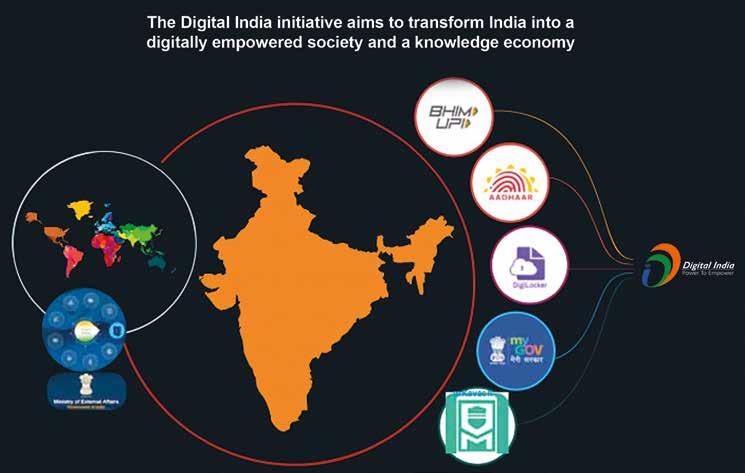
Dr S Jaishankar,
External Affairs minister December
FUTURISTIC HEALTH
In recent weeks and months, India’s fight against the global pandemic of COVID-19 was significantly strengthened by a tracking and tracing app called AarogyaSetu (Aarogya meaning a state free of disease and Setu meaning a bridge), designed quickly and promptly by a collaborative team comprising of professionals from NITI Aayog, Ministry of Information Technology, and India’s top startups. This app established a record of rapid adoption, racing to 50 million users in just 13 days, allowing Indian citizens to keep abreast of COVID-19 in their locality or region, and also access other services.
Similarly, a massive effort is underway to establish the Indian National Digital Health Mission (NDHM), which will provide a personal health ID to each citizen, connecting each to the medical system, while ensuring portability, privacy, fraud prevention, and grievance redressal. NDHM will have the IT backbone and governing rules, but the interface layers will be provided by the private sector, bringing in innovation, user-customisation, and lowering of costs for consumers. VISIONARY APPROACH
UPI and Aarogya Setu are just two of several examples of how the public and innovation systems have come together for changing lives of Indian citizens. Many more such changes can be expected in coming months and years. In the month of July 2020, a new public-private collaboration, called the Open Credit Enablement Network (OECN) was also launched. It will enable easier credit for Indian consumers, and will allow lenders and marketplaces to create innovative products for financial credit at a large scale. This will be done through a common platform utilising a shared language base and ushering in uniformity. As part of Prime Minister Narendra Modi’s groundbreaking reforms under the Aatmanirbhar Bharat initiative to make India self-reliant, the Indian space sector has been reformed and restructured, to enable participation of the private sector and startups in this exciting new frontier that combines science, technology and innovation. The Indian Space Research Organisation (ISRO) is focussing on new research or new missions, while private entities will take the onus of providing ONE STOP SOLUTION
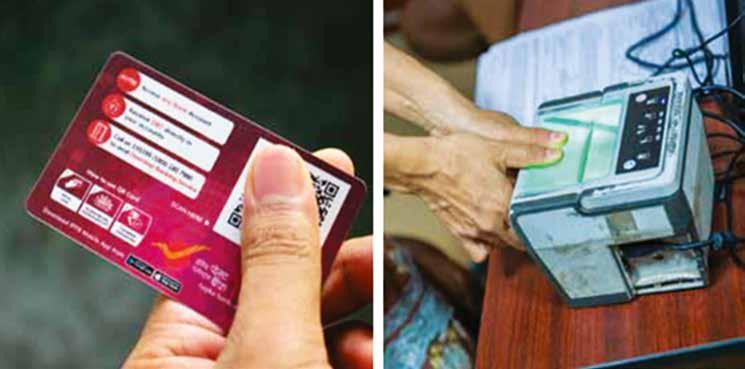
UMANG (Unified Mobile Application for New-age Governance) is envisaged to make e-governance ‘mobile first’. It is developed by Ministry of Electronics and Information Technology (MeitY) and National e-Governance Division (NeGD).
Through the UMANG App, over 1000 services can be accessed across Central (284) and State (441) governments. Over 275 utility services can also be accessed from over 140 government departments. Recently, new services like ICMR, Public Transport, Oil and Gas, Augmenting Writing Skills for Articulating Research (AWSAR) and Agricultural support to farmers have also been added.
EASE OF ACCESS
Passport Seva Project, being executed by Consular, Passport and Visa (CPV) division of the Ministry of External Affairs (MEA), Government of India, aims at providing all the Passport-related services to the Indian Citizens in a speedy, convenient and transparent manner. The mPassportSeva App is one of the largest projects under the National e-Governance Plan (NeGP) and is being jointly supported by Tata Consultancy Services (TCS) following a Public Private Partnership (PPP) model. The app, already in service, is being used to cater to Indian citizens across the country through over 75 Passport Seva Kendras. space-based services at reasonable cost and maximum efficiency. This reform will attract Indian innovators to and its public applications.
In all these sectors, the common underlying theme has been visionary reforms and enabling support from the government or public sectors, upon which the entrepreneurs of India have built products and services. This model shall be the bedrock of Aatmanirbhar Bharat, and take Indian science, technology and innovation to new heights. Mudit Narain is currently an OSD in the Office of the Principal Scientific Advisor to the Govt of India. He holds two masters degrees in engineering and public policy from MIT. He served

in the Energy practice of World Bank for 7 years, working on projects across 9 countries before joining NITI Aayog to establish the Atal Innovation Mission.

THE AMAZING BEAUTY OF INDIA
As the seventh largest country in the world in terms of territory and second largest in terms of population, India expands over an area of six climate zones, with each more beautiful than the last and all of them breathtaking. With a rich history, culture, impressive buildings, religions and spirituality, but also the beauty of its landscapes – from the snowcapped Himalayan valleys and green rainforests, to golden beaches bordered by palm trees – this country is one of the world's most attractive and exotic destinations to visit.

The UNESCO listed monument of Humayun’s Tomb in New Delhi after heavy showers during the monsoon season


